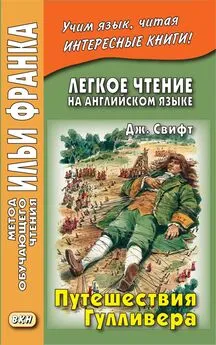The Theatre - Kellerman, Jonathan
- Название:Kellerman, Jonathan
- Автор:
- Жанр:
- Издательство:неизвестно
- Год:неизвестен
- ISBN:нет данных
- Рейтинг:
- Избранное:Добавить в избранное
-
Отзывы:
-
Ваша оценка:
The Theatre - Kellerman, Jonathan краткое содержание
For all its many crimes of passion and politics, Jerusalem has only once before been victimized by a serial killer. Now the elusive psychopath is back, slipping through the fingers of police inspector Daniel Sharavi. And one murderer with a taste for young Arab women can destroy the delicate balance Jerusalem needs to survive.
Kellerman, Jonathan - читать онлайн бесплатно полную версию (весь текст целиком)
Интервал:
Закладка:
It was there, within the walls, that Daniel's grandfather and father had been born, and from where he himself had been carried off as an infant in '48, rescued by strangers, squalling in terror under the thunder of gunfire.
My origins, he thought, gazing out at the village. But he felt no pangs of nostalgia, saw only the origins of a dead girl.
Warm beer, thought the Chinaman, quickening his pace. He'd been prepared to report his information on the girl, thought he'd done a pretty good job for one night out, until the Arab had called and told him of the ID. Sharp guy, Daoud. Still, the boyfriend angle was a contribution.
The village had come alive, shutters spreading, doors nudged open, a buzz of mutters and whispers trailing the detectives' footsteps. The corneal glint of the curious sparkled from grated windows, receding into the shadows at the hint of eye contact with the strangers.
"Probably looks like a raid to them," said the Chinaman.
Neither Daniel nor Daoud responded. Both were concentrating on walking quickly enough to keep up with the big man's stride.
They reached the Rashmawi house and climbed the front steps. The arched window was open but covered with a bright floral drape. From inside came a drone of Arabic music and the aroma of coffee laced with cardamom.
Daniel knocked on the door. There was no immediate answer and he knocked again, louder. At once the volume of the music lowered and was overriden by conversation. The sound of shuffling feet grew louder and the door opened. A young man stood in the doorway-eighteen or nineteen, slender, and round-faced with a prematurely receding hairline. A pair of heavy tortoise-shell eyeglasses dominated a mild face pitted with acne scars. He wore a cheap gray shirt, beltless gray trousers a size too large, and black bedroom slippers. Looking over his shoulder, he came out to the top step, closed the door behind him, and stared at each of them, dark eyes swimming behind thick lenses.
"Yes?" His voice was soft, tentative.
"Good afternoon," said Daniel, in Arabic. "I'm Chief Inspector Sharavi of the Police Department. This is Sub-inspector Lee and this is Sergeant Daoud. Your name, please?"
"Rashmawi, Anwar."
"What's your relationship to Muhamid Rashmawi?"
"He's my father. What's this about, sir?" There was a curious lack of surprise in the question. The flat, sad nuance of anticipated misfortune.
"We'd like to come in and talk with your father."
"He's not a well man, sir."
Daniel took out the photo of Fatma and showed it to him. The young man stared at it, lips trembling, eyes blinking rapidly. For a moment it seemed as if he would break into tears. Then he wiped his face clean of expression, held the door open for them, and said, "Come in, sirs."
They entered a long, narrow, low-ceilinged room, freshly whitewashed and surprisingly cool, its stone floor covered by frayed, overlapping Oriental rugs and mattresses draped with embroidered coverlets. A rug hung also from the rear wall, next to a row of coat hooks and a framed photograph of Gamal Abdel Nasser. All the other walls were bare.
Directly under Nasser's portrait was a portable television on an aluminium stand. The coffee aroma came from a small cooking area to the left: wood stove, hot plate, homemade shelves bearing pots and utensils. A battered iron saucepan sat on the stove, sizzling over a low fire. The stove's exhaust conduit rose and pierced the ceiling. Across the room, to the right, was a flimsy-looking wooden door and from behind it came female voices, the cries and laughter of children.
An old man sat on a mattress in the center of the room, thin, sun-baked, and wrinkled as an old shopping bag. His bare head was bald and conspicuously pale, his mustache a grizzled rectangle of white filling the space between nose and upper lip. He wore a pale-gray jallabiyah striped faintly with darker gray. An unfurled kaffiyah headdress and coil lay in his lap. To his right was a small carved table upon which sat an engraved brass pitcher and matching demitasse cup, a pack of Time cigarettes, and a string of worry beads. His left hand held a red plastic transistor radio. One of his feet was curled under him; the other extended straight out and was wrapped in bandages. Next to the ankle was an assortment of vials and ointments in squeeze-tubes. Just behind the medicines, another carved table held a well-foxed copy of the Quran within arm's reach.
He stared downward, as if studying the pattern of the rug, a cigarette dangling from his lips. The sound of the detectives' entry caused him to look up, squinting. Expressionless. It was then that Daniel noticed the resemblance to Fatma-the same synchrony of features, the handsome crispness lacking in the brother.
"Father," said Anwar, "these men are with the police."
Rashmawi gave his son a sharp look and the youth rushed over and raised him to tottering feet. Once upright, the old man gave a small head bow and said, in a low, rasping voice, "Marhaba." Welcome. "Ahlan Wa Sahlan." You've found in our home a wide valley.
The hospitality ritual. Daniel looked at the hard, weathered face, like a carved mask with its hollowed cheeks and deep eye sockets, unsure if the man behind it was victim or suspect.
"Ahlan Bek," he replied. The same welcome will be extended to you when you visit my home.
"Sit, please," said Rashmawi, and he allowed his son to lower him.
The detectives settled in a semicircle. The old man barked an order and Anwar crossed the room, opened the wooden door, and spoke into the opening. Two young women hurried out, dressed in dark robes, their hair covered, their feet bare. Averting their faces, they padded quickly to the cooking area and began a rapid ballet of pouring, scooping, and filling. Within moments the men were presented with demitasses of sweet, muddy coffee, platters laden with dishes of olives, almonds, sunflower seeds, and dried fruit.
Rashmawi waved his hand and the women danced away, disappearing into the room on the right. Another wave sent Anwar back with them. Almost immediately, an insectile buzz of conversation filtered through the thin wood of the door.
"Cigarette," said Rashmawi, holding out his pack. The Chinaman and Daoud accepted and lit up.
"You, sir?"
Daniel shook his head and said, "Thank you for your kind offer, but today is my Sabbath and I don't handle fire."
The old man looked at him, saw the kipah on his head, and nodded. He raised a dish of dried figs from the platter and waited until Daniel was chewing enthusiastically before settling back on the mattress.
"To what do I owe the honor of this visit?"
"We're here to talk about your daughter, sir," said Daniel.
"I have three daughters," said the old man casually. "Three sons as well, and many fat grandchildren."
One daughter less than Daoud had mentioned.
"Your daughter Fatma, sir."
Rashmawi's face went blank, the dry, well-formed features settling into paralytic stillness.
Daniel put down his demitasse, took out the picture, and showed it to Rashmawi, who ignored it.
"She was found yesterday," said Daniel, watching the old man's reaction.
Rashmawi made a tent of his fingers. Picked up his demi-tasse but put it down without drinking.
"I have three daughters," he said. "Sahar, Hadiya, and Salway. None are idle. Three sons as well."
The buzz behind the door had grown louder, solidifying into conversation-urgent, frightened female chatter. A tentative male response. Then a low moan rising steadily in pitch.
"How long has she been missing?" Daniel asked.
Rashmawi dragged deeply on his cigarette, drank coffee, and cracked an almond with long, knobby fingers. Removing the nut, he put it in his mouth and chewed slowly.
The moan behind the door escalated to a high-pitched wail.
"Silence!" thundered the old man and the wail dissipated into an artificial hush, broken once by a muffled sob.
Daniel showed him the photo again, caught his eye, and for a moment thought he saw something-pain, fear-pass across the weathered face. But whatever it was vanished instantaneously and Rashmawi folded his arms across his chest and stared past the detectives, as silent and unmoving as a stone idol.
"Sir," said Daniel, "it pains me to be the one to tell you this, but Fatma is dead."
Nothing.
Smoke from three untouched cigarettes ribboned lazily toward the ceiling.
"She was murdered, sir. Violently."
A long, maddening silence, every creak and exhalation, thunderous. Then:
"I have three daughters. Sahar, Hadiya, and Salway. None are idle. Three sons as well. Many grandchildren."
The Chinaman swore softly and cleared his throat. "It was a very brutal murder. Multiple stab wounds."
"We want to find the person who did it," said Daniel.
"To avenge her," added the Chinaman.
The wrong thing to say, thought Daniel. Revenge was the prerogative of the family. To suggest that an outsider could accomplish it was at best ignorant, at worst an insult. He looked at the Chinaman and gave his head a barely perceptible shake.
The big man shrugged and started gazing around the room, restless and eager for action.
Rashmawi was smiling strangely. He'd placed His hands on his knees and had started to sway, as if in a trance.
"Any information you can provide is essential, sir," said Daniel. "About anyone who could have done this to Fatma. Why anyone would have wanted to hurt her."
Anyone other than you or your sons
"A bad influence, perhaps," said Daoud. "Someone who tried to corrupt her."
That, too, seemed the wrong thing to say, for the old man's face compressed with anger and his hands began to shake. He pushed down harder on his knees to avoid the appearance of feebleness. Clamped his eyes shut and continued swaying, further out of reach than ever.
"Mr. Rashmawi," said Daniel, more forcefully. "No young girl should have to come to such an end."
Rashmawi opened his eyes and Daniel examined them closely. Irises the color of the coffee in his demitasse, the whites soiled an unhealthy shade of gray. If eyes were the mirror of the soul, these mirrors reflected a weary soul beset by illness, fatigue, the pain of remembrance. Or was it guilt he was seeing, Daniel wondered-segregated from the heart by a fortress of silence?
Eloquent eyes. But you couldn't work a case based on unspoken eloquence.
"Tell us what you know, sir," said Daniel, fighting back impatience. "What she was wearing when she left, her jewelry."
Rashmawi's shoulders rounded and his head drooped, as if suddenly too heavy for his neck to support. He covered his face with his hands, swayed some more, then raised himself up, fueled by defiance.
"I have three daughters," he said. "Three."
"Hard-assed old bastard," said the Chinaman. "Didn't so much as look at the picture. Our best bet is to talk to the women."
They stood by the side of the dirt pathway, several yards from the house. The wailing had resumed and was audible at that distance.
"We could try," said Daniel, "but it would be a violation of their family structure."
"To hell with family structure. One of them may have sliced her, Dani."
"The point is, Yossi, that the family structure makes it impossible for us to get information. Without the father's permission, none of them is going to talk to us."
The big man spat in the dirt, pounded his fist into his hand.
"Then haul them in! A few hours in a cell and we'll see about their goddamned family structure."
"That's your plan, is it? Arrest the bereaved."
The Chinaman started to say something, then sighed and smiled sheepishly.
"Okay, okay, I'm talking shit. It's just that it's weird. The guy's daughter is butchered and he's as cold as ice, making like she never existed." He turned to Daoud: "That culturally normal?"
Читать дальшеИнтервал:
Закладка:



![Джеймс Купер - Пионеры, или У истоков Саскуиханны [The Pioneers, or The sources of the Susquehannah]](/books/1066142/dzhejms-kuper-pionery-ili-u-istokov-saskuihanny-t.webp)





